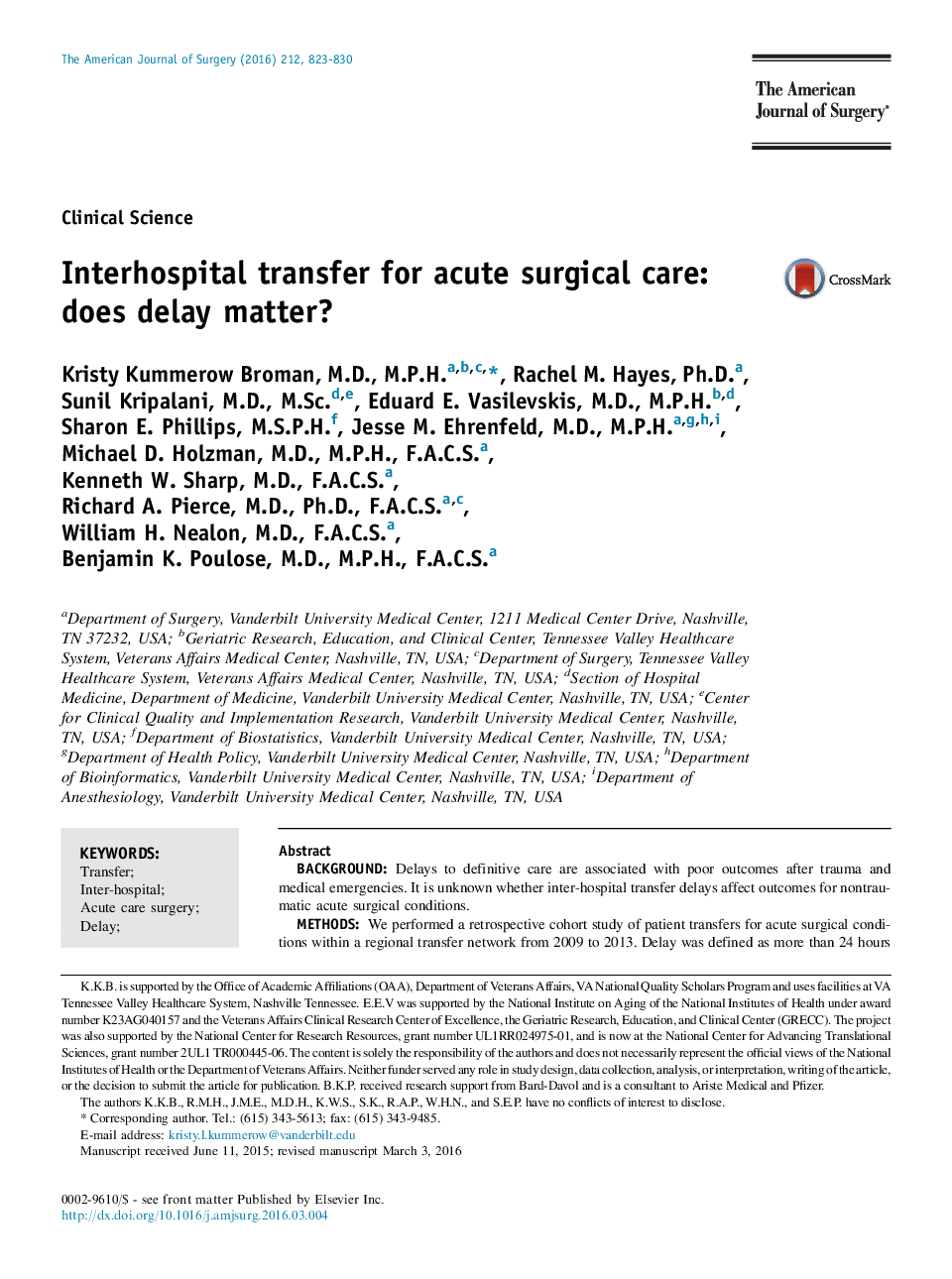| Article ID | Journal | Published Year | Pages | File Type |
|---|---|---|---|---|
| 5731408 | The American Journal of Surgery | 2016 | 8 Pages |
â¢Data from a retrospective cohort of 2,091 patient transfers from a 200+ hospital referral network.â¢Delay in transfer request obtained from abstraction of referring facility records.â¢Delays were more common for older patients and those with more comorbid conditions.â¢Transfer delay was not associated with post-transfer mortality or hospice discharge.â¢There is effective triage of high-risk patients.â¢Further studies should explore other transfer processes and patient outcomes.
BackgroundDelays to definitive care are associated with poor outcomes after trauma and medical emergencies. It is unknown whether inter-hospital transfer delays affect outcomes for nontraumatic acute surgical conditions.MethodsWe performed a retrospective cohort study of patient transfers for acute surgical conditions within a regional transfer network from 2009 to 2013. Delay was defined as more than 24Â hours from presentation to transfer request and categorized as 1 or 2+ days. The primary outcome was post-transfer death or hospice. Bivariate and multivariable logistic regression were performed.ResultsThe cohort included 2,091 patient transfers. Delays of 2 or more days were associated with death or hospice in unadjusted analyses, but there was no difference after adjustment. Predictors of post-transfer death or hospice included older age, higher comorbidity scores, and greater severity of illness.ConclusionsDelays in transfer request were not associated with post-transfer mortality or discharge to hospice, suggesting effective triage of nontraumatic acute surgical patients.
